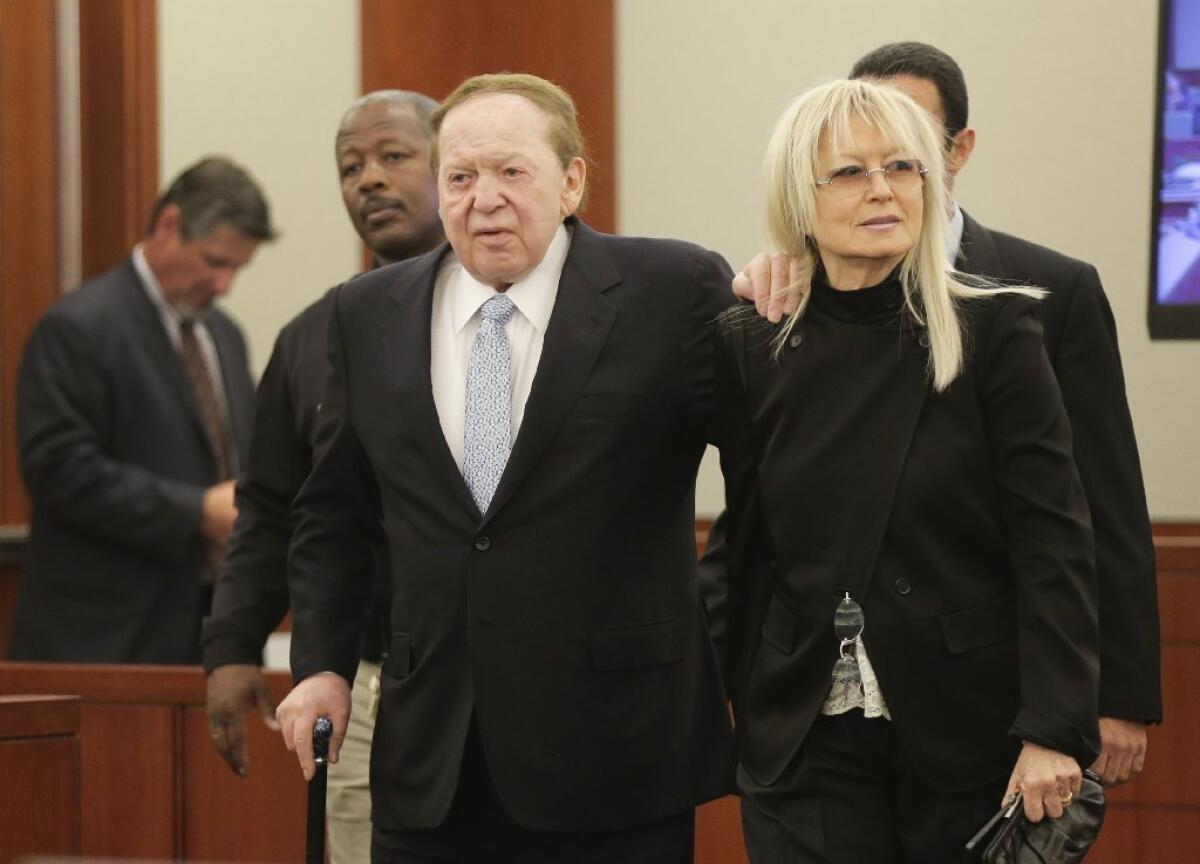The shame of secret political donors

- Share via
Thanks to the tenacity of the Fair Political Practices Commission, the names are now dribbling out of the campaign donors who secretly supported an anti-union measure and opposed a desperately needed tax increase on last year’s California ballot.
As one might expect, it’s a disgraceful roster of billionaires intent on pulling up the ladder of advancement behind them. Charles Schwab. Eli Broad. B. Wayne Hughes (founder of Public Storage). The owners of the Gap. Sheldon Adelson of the Las Vegas Sands.
But the FPPC’s action in exposing these secret donors may have another laudable result: It tells the recipients of manifestly secret donations that they should know better who’s buttering their bread. That’s because the FPPC is seeking an $11-million disgorgement from the Small Business Action Committee, the conservative political group that got the secret money. That puts the SBAC in a painful spot, which is just where it belongs.
First, the original donors. Public documents identify them all as secret donors to Americans for Job Security, a Virginia group that eventually funneled the money to the Center to Protect Patient Rights, an Arizona organization affiliated with the right-wing billionaire brothers Charles and David Koch, which funneled it in turn to something called Americans for Responsible Leadership, which gave more than $11 million of it to the SBAC.
Are you having trouble following this? That’s exactly what the donors hoped. In any case, the SBAC used the donation to fight Gov. Jerry Brown’s ultimately successful tax increase ballot initiative and to support Proposition 32. Prop. 32, which failed, aimed to drive unions out of politics, leaving the field free for people like, well, Sheldon Adelson, Charles Schwab and B. Wayne Hughes.
Shortly after announcing its settlement with the the Center to Protect Patient Rights and Americans for Responsible Leadership (including payment of $1 million in fines), the FPPC lowered the boom on the the Small Business Action Committee, instructing it to fork over the $11 million it received through this daisy chain.
The SBAC’s president, Joel Fox, is screaming foul. Fox has been around California politics for ages. He’s a perfectly sincere conservative activist who knows the rules, and he says he complied with the law by naming Americans for Responsible Leadership as his donor. He says he checked out ARL and determined that it was “a legitimate organization.” But he didn’t go further to determine where it got its money. “We can’t follow every dollar back,” he says. “We didn’t know there was anybody else” behind ARL.
That sounds mighty disingenuous. If Fox really did his due diligence on ARL he had to know that it was a front for someone else. One way or another, the question of where an organization appearing out of left field with an $11-million war chest just days before an election was a live one.
Fox argues that it’s improper to bill the SBAC for $11 million, since it didn’t break the law itself. But he’s got to know that’s not how disgorgement works. It’s not at all unusual for ill-gotten gains to be seized, even from people who didn’t break the law. If you receive stolen property, even if innocently, typically you have to give it up. And if you get money that was itself the product of illegal activity, the same principle does, or should, apply.
Fox notes that the SBAC doesn’t have the money anymore, since it was spent on the election. That’s tough. The goal of California’s political finance laws is not only to keep dark money from coming into the state, but to keep it from making its way into political campaigns. The $11 million in lessons being taught the SBAC are: Don’t spend crooked money, and have higher standards for what you consider “legitimate.”
More to Read
Get the L.A. Times Politics newsletter
Deeply reported insights into legislation, politics and policy from Sacramento, Washington and beyond. In your inbox three times per week.
You may occasionally receive promotional content from the Los Angeles Times.











